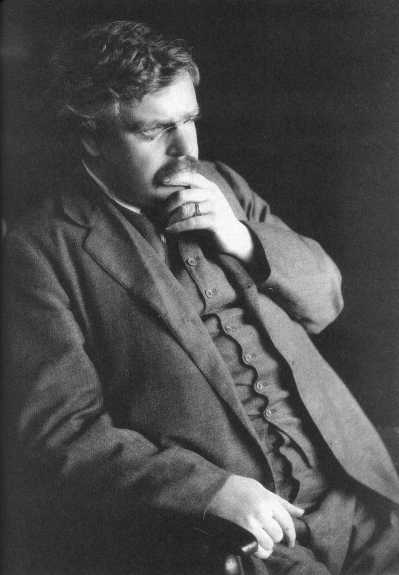"Ann Veronica is not an immoral book in any imaginable sense; but that is not the primary point. The primary point is that, that it is no business of the State or of any coercive power to suppress immoral books. The business of any coercive and collective power is to suppress indecent books; books that violate fixed verbal and physical custom in such a way as to be a public nuisance. We have a right to be guarded against bodily indecency as against bodily attack; but do not let us call in the police to protect our souls; we must protect our souls with the sword of the spirit. If once I am to test books by whether I think them profoundly and poisonously immoral, I could furnish a very long list to the police. I should at once ask the magistrates to forbid the sale of Froud's History of England, Burke's French Revolution, Hobbes's Leviathan, Smiles's Self-Help, Carlyle's Frederick the Great, all the works of the Imperialists, Eugenists, Theosophists, and Higher Thinkers, and at least half the works of Socialists and of Jingoes. If once we begin to speak of whether things do harm to men's souls, our Index Expurgatorious will begin to fill the British Museum. Ann Veronica does not urge immorality; it does not urge anything; it intentionally ends with a note of interrogation. I myself even read it as a note of irony; the upshot of the tale, if anything, seemed to me to be rather against modern revolt that in its favor...But the question is not whether my spiritual version is correct; the question of indecency is, comparatively speaking, a question of fact. And the fact is that the book is no more indecent than Bradshaw...Suppose that it were (as it is not) spiritually evil; suppose it were as profligate as Froude or as foul as Smiles and Self-Help, the point is that these spiritual repugnances must not be enforced politically, or we shall lose the very name of freedom."
-G.K. Chesterton, Daily News, 12 February 1910 (via Gilbert Magazine)

No comments:
Post a Comment